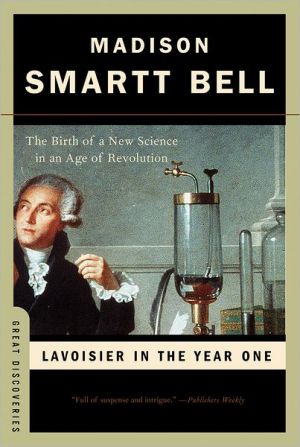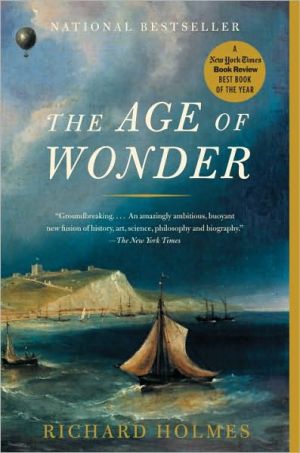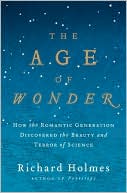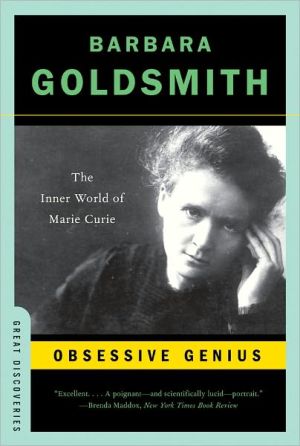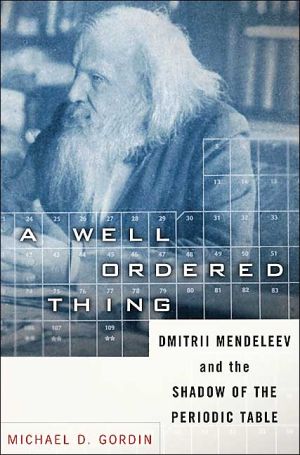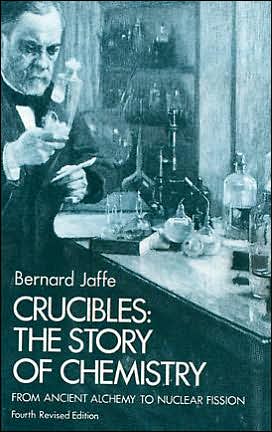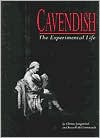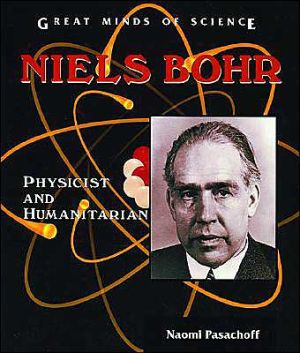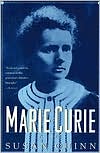Lavoisier in the Year One: The Birth of a New Science in an Age of Revolution (Great Discoveries Series)
“Fresh . . . solid . . . full of suspense and intrigue.”—Publishers Weekly\ Antoine Lavoisier reinvented chemistry, overthrowing the long-established principles of alchemy and inventing an entirely new terminology, one still in use by chemists. Madison Smartt Bell’s enthralling narrative reads like a race to the finish line, as the very circumstances that enabled Lavoisier to secure his reputation as the father of modern chemistry—a considerable fortune and social connections with the likes...
Search in google:
“Fresh . . . solid . . . full of suspense and intrigue.”—Publishers Weekly Publishers Weekly Novelist Bell (The Stone That the Builder Refused, etc.) knows a good story when he sees it: the life of French scientist Antoine Lavoisier (1743-1794) is full of suspense and intrigue set against a backdrop of war and revolution. Lavoisier, best known for having "discovered" oxygen, was arguably one of the most brilliant scientific minds of the Enlightenment, helping to lay the foundation for our modern understanding of chemistry. He was also a wise investor, amassing a substantial personal fortune by buying into the privatized French tax system-which eventually placed him on the wrong side of the French Revolution and at the foot of the guillotine. This account works best as the story of a well-intentioned and honorable man caught up in events beyond the comprehension of his formidable intellect, and Bell uses his novelistic skills in the service of narrative and character to keep Lavoisier's story fresh. When Bell detours into the history of chemistry, the writing drags. This solid if uneven book will appeal most to readers interested in the vibrant life and tragic death of a key figure in the history of science. 8 illus. not seen by PW. Agent, Jane Gelfman. (June) Copyright 2005 Reed Business Information.
IAncien regime1IIOut of alchemy34IIILe principe oxygine63IVThe chemical revolution119VThe end of the year one151
\ From Barnes & NobleNovelist Madison Smartt Bell has penned the nearly unbelievable story of a man who exemplified an age, then died at its hands. The son of a wealthy Parisian family, Antoine Lavoisier (1743-94) embodied the ideals of the Enlightenment. A prominent leader in the burgeoning international scientific community, he almost single-handedly created the chemical revolution that helped define modern science. A political liberal as well as a scientific revolutionary, he supported the French Revolution and served in the new government. But his record could not protect from the ravages of the Terror, and he was guillotined in May 1794, prompting one observer to note, "A moment was all that was necessary in which to strike off this head, and probably a hundred years will not be sufficient to produce another like it."\ \ \ \ \ Los Angeles Times Book ReviewBell succeeds, not only in depicting the rigorousness of Lavoisier’s method, but also in conveying a sense of his character, as revealed most affectingly by the quietly heroic composure with which he faced his own death.— Merle Rubin\ \ \ New York Times Book ReviewA two-part thriller. The first describes Lavoisier’s successful effort to win the race to explain how chemical processes work; the second, his pursuit by French revolutionaries.— Jacob Heilbrunn\ \ \ \ \ Publishers WeeklyNovelist Bell (The Stone That the Builder Refused, etc.) knows a good story when he sees it: the life of French scientist Antoine Lavoisier (1743-1794) is full of suspense and intrigue set against a backdrop of war and revolution. Lavoisier, best known for having "discovered" oxygen, was arguably one of the most brilliant scientific minds of the Enlightenment, helping to lay the foundation for our modern understanding of chemistry. He was also a wise investor, amassing a substantial personal fortune by buying into the privatized French tax system-which eventually placed him on the wrong side of the French Revolution and at the foot of the guillotine. This account works best as the story of a well-intentioned and honorable man caught up in events beyond the comprehension of his formidable intellect, and Bell uses his novelistic skills in the service of narrative and character to keep Lavoisier's story fresh. When Bell detours into the history of chemistry, the writing drags. This solid if uneven book will appeal most to readers interested in the vibrant life and tragic death of a key figure in the history of science. 8 illus. not seen by PW. Agent, Jane Gelfman. (June) Copyright 2005 Reed Business Information.\ \ \ \ \ Library JournalAntoine Lavoisier is often credited as the founder of modern chemistry. Born into a French middle-class family in 1742, formally educated in law, but intensely interested in science, he held several government positions and, naturally, was involved with the French Academy of Science. Tragically, at the peak of his scientific powers, Lavoisier became a victim of the Reign of Terror when his government activities led to his beheading in 1794. Turning from the Haitian slave rebellion depicted in his trilogy of novels (All Souls' Rising, Master of the Crossroads, The Stone That the Builder Refused), Bell addresses the French Revolution (which inspired the rebellion) and Lavoisier's role in his first major work of nonfiction. Bell does an admirable job of interlinking all the complexities of Lavoisier's life and circumstances as they collided with a social and political revolution that had gone out of control. He also paints an excellent portrait of 18th-century scientific culture, with its national and individual rivalries. This book will appeal to readers interested in the history of science and the French Revolution. Recommended for high school and public libraries as well as general academic collections. [See Prepub Alert, LJ 2/1/05.]-Margaret F. Dominy, Drexel Univ. Lib., Philadelphia Copyright 2005 Reed Business Information.\ \
